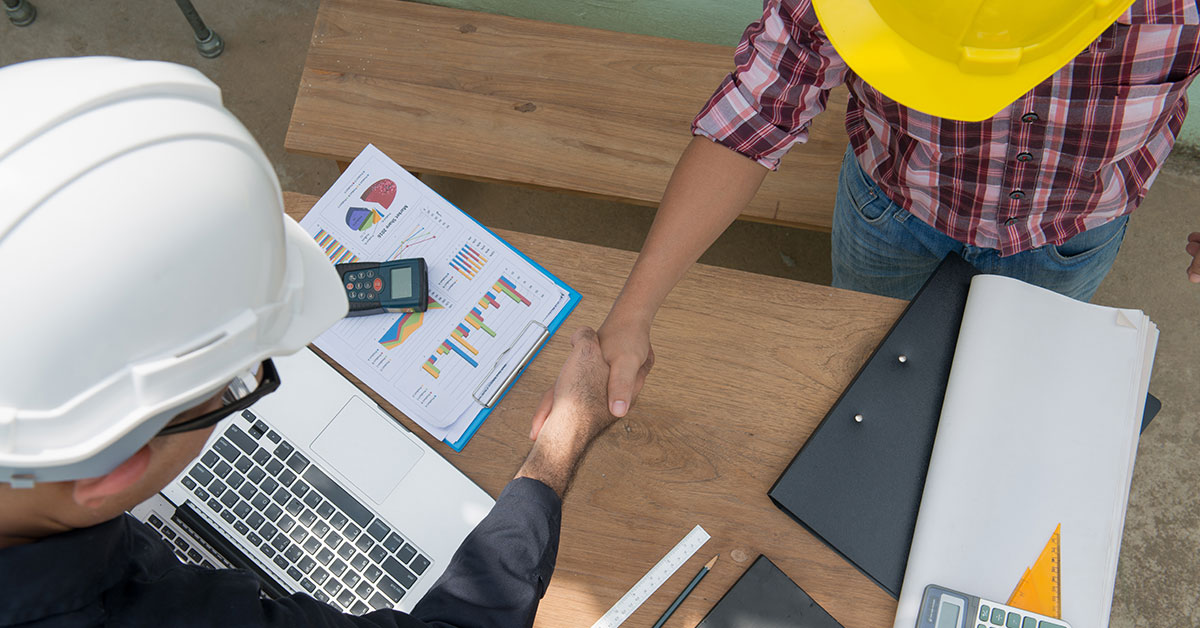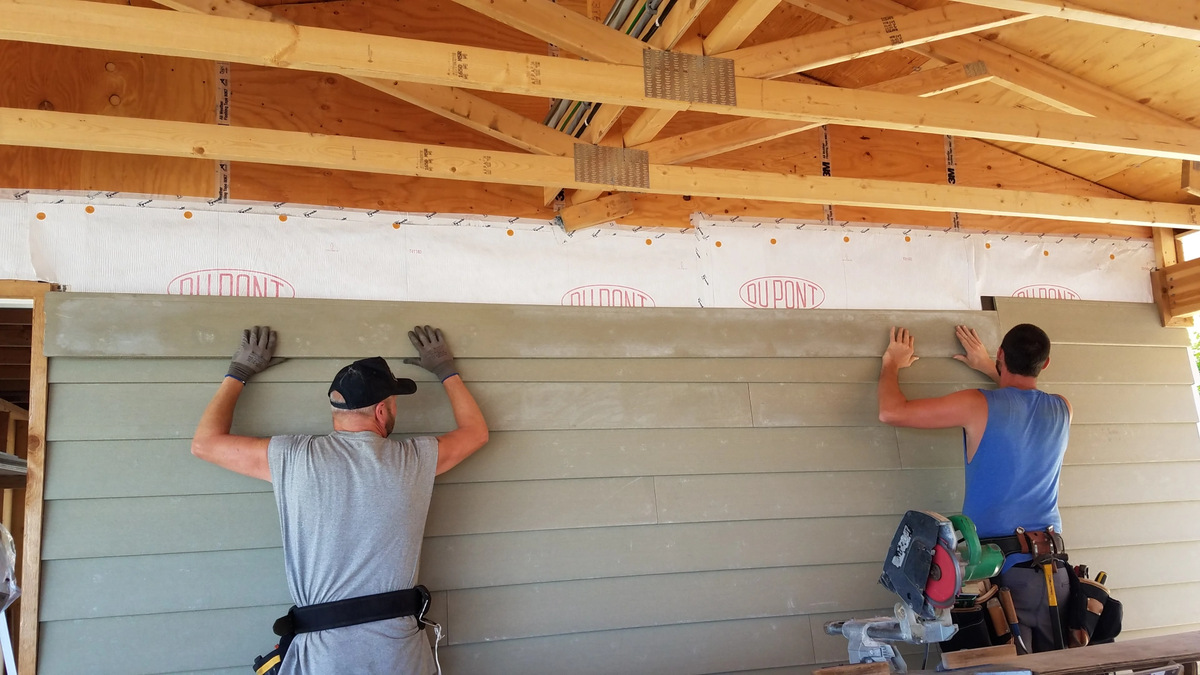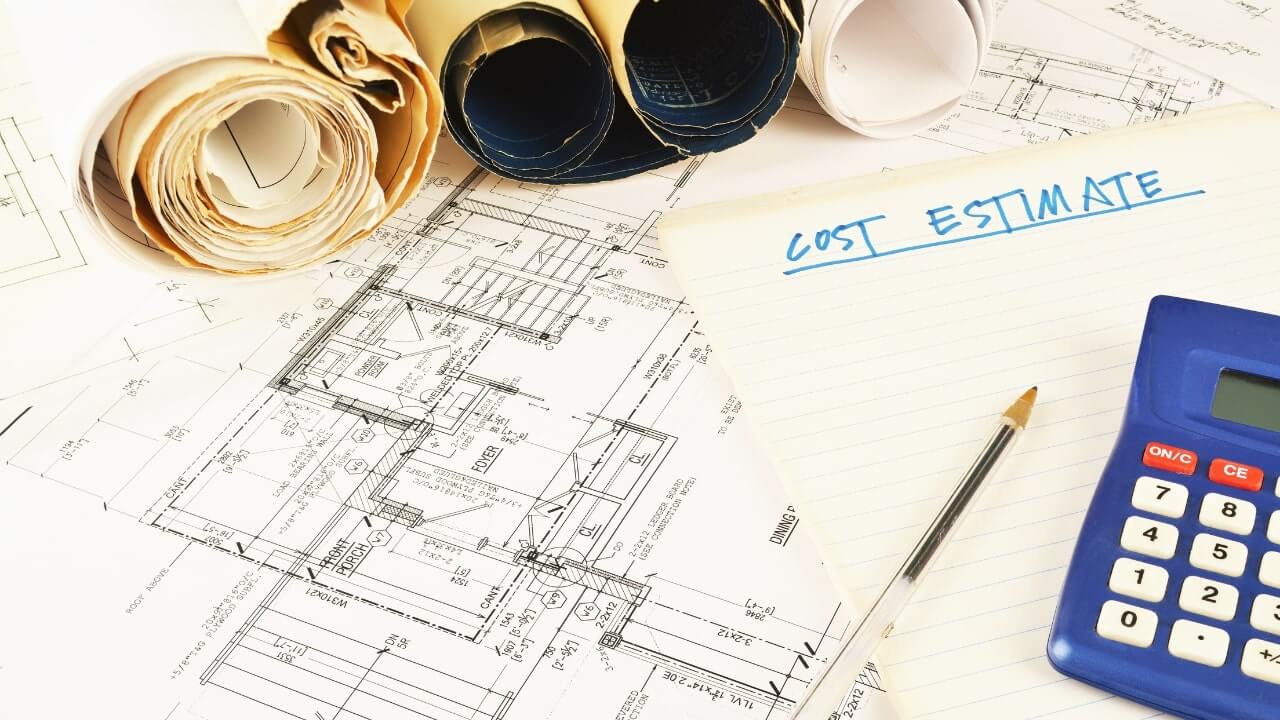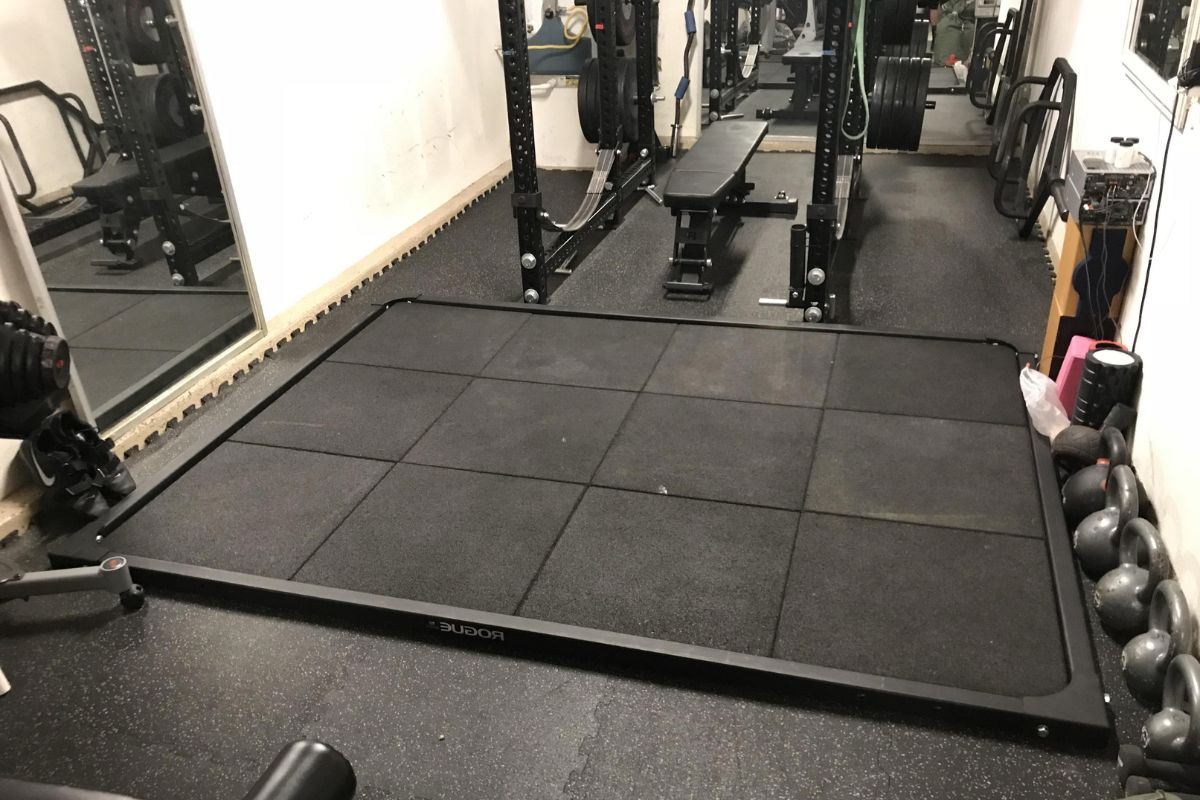Home>diy>Building & Construction>How To Bid On Construction Projects


Building & Construction
How To Bid On Construction Projects
Modified: January 24, 2024
Learn how to successfully bid on construction projects with our comprehensive guide. Gain insights and strategies for winning building construction contracts.
(Many of the links in this article redirect to a specific reviewed product. Your purchase of these products through affiliate links helps to generate commission for Storables.com, at no extra cost. Learn more)
Introduction
When it comes to construction projects, bidding is a crucial step in securing new contracts. As a contractor, it is essential to understand the bid process and how to effectively submit a winning bid. By mastering this process, you can increase your chances of securing lucrative construction projects and growing your business.
In this article, we will guide you through the process of bidding on construction projects, from researching potential opportunities to submitting a winning bid proposal. We will also provide valuable tips and strategies to help you stand out from the competition and increase your chances of success.
Understanding the intricacies of the bid process is key to positioning yourself as a competitive construction contractor. By researching, preparing, and submitting well-crafted bid proposals, you can improve your chances of winning profitable contracts and expanding your clientele.
So, let’s dive into the details of how to effectively bid on construction projects and pave the way for success in the industry.
Key Takeaways:
- Mastering the bid process, from understanding to submission, is crucial for contractors to secure lucrative construction projects and grow their businesses. Thorough research, accurate cost calculation, and professional bid writing are key to success.
- Attention to detail, professionalism, and strategic decision-making are essential for contractors to navigate the complexities of the construction bidding process. By following the outlined steps and implementing effective strategies, contractors can increase their chances of winning profitable construction projects.
Read more: How Does Bidding Work In Construction
Understanding the Bid Process
The bid process is a structured procedure that allows construction contractors to submit proposals for a specific project. This process involves the evaluation of submitted bids to determine the most qualified and cost-effective contractor for the project. Understanding the steps involved in the bid process is crucial for contractors looking to secure construction projects.
The first step in the bid process is the announcement of a project by the client or project owner. This announcement typically includes project details, requirements, and specifications. It is important for contractors to carefully review these documents to determine if the project aligns with their expertise, capabilities, and available resources.
Once a contractor decides to bid on a project, the next step is to obtain the bid package. This package includes all the necessary documents, such as construction plans, specifications, contract terms, and any other relevant information. Contractors must thoroughly review these documents to gain a comprehensive understanding of the project and its requirements.
After reviewing the bid package, contractors often have the opportunity to ask questions or seek clarifications through a pre-bid meeting or written inquiries. This step allows contractors to gather more information about the project and address any uncertainties or ambiguities.
Once all the necessary information is gathered, contractors can begin preparing their bid proposals. This involves estimating project costs, determining a competitive price, and outlining the approach and timeline for completing the project. Contractors must carefully analyze the project requirements and consider factors such as labor, materials, equipment, subcontractors, and any other associated costs.
After the bid proposal is complete, it is important to review and double-check all the details for accuracy and completeness. Any errors or omissions may lead to disqualification or misunderstandings during the evaluation process.
Once the bid proposal is finalized, contractors must submit it by the specified deadline. It is important to follow the submission instructions carefully and provide all the required documentation. Late submissions are typically not accepted, so punctuality is crucial in this process.
After the submission deadline, the clients or project owners evaluate the bids based on various factors such as price, qualifications, experience, and past performance. The evaluation process may involve multiple rounds of review and negotiations.
Finally, the client or project owner selects the winning bid based on their evaluation criteria. The selected contractor is then awarded the project, and the contract negotiation process begins.
Understanding the bid process is essential for contractors to navigate through the complexities of securing construction projects. By carefully following the steps and submitting well-prepared bid proposals, contractors can increase their chances of winning contracts and growing their business.
Researching Construction Projects
Before jumping into the bidding process, it is crucial for contractors to conduct thorough research on potential construction projects. Proper research helps contractors identify suitable projects, evaluate their feasibility, and determine if they align with their company’s goals and capabilities. Below, we outline the key steps involved in researching construction projects.
1. Identifying Opportunities: Start by identifying potential projects that align with your expertise and target market. Look for projects in your geographical area or within your niche construction specialty. This can be done by searching online construction portals, industry publications, or networking with other professionals in the construction industry.
2. Gathering Project Information: Once you identify a potential project, gather as much information as possible. Look for project specifications, plans, scope of work, and any other relevant documents. You may need to contact the project owner or their representative to request this information.
3. Assessing Project Suitability: Evaluate the project’s suitability by considering factors such as project size, complexity, timeline, and your available resources. Determine if your company has the necessary expertise, experience, and capacity to successfully complete the project within the given constraints.
4. Analyzing Project Risks: Assess and analyze the potential risks and challenges associated with the project. Consider factors such as site conditions, weather, regulatory requirements, and potential conflicts with neighboring properties. Evaluate if the project’s risks align with your risk tolerance and if you have the necessary capabilities to mitigate them.
5. Understanding the Client: Research and gather information about the project owner or client. Understand their reputation, financial stability, and past projects. This will help you gauge their expectations, requirements, and the likelihood of successful contract negotiation.
6. Competitive Analysis: Research your competition to gain insights into their capabilities, strengths, and weaknesses. Analyze their previous projects, client feedback, and pricing strategies. Assess how you can differentiate your bid and offer unique value propositions.
7. Building Relationships: Networking and building relationships within the construction industry can provide valuable insights and potential project leads. Attend industry events, join trade associations, and engage with other professionals to expand your network and gain access to exclusive project opportunities.
8. Financial Analysis: Conduct a financial analysis to determine the financial viability of the project. Evaluate the estimated project cost, potential profit margin, and return on investment. Ensure that the project aligns with your company’s financial goals and objectives.
9. Due Diligence: Before committing to bidding on a project, conduct due diligence on the project and the client. This may involve visiting the project site, consulting with industry experts, and reviewing any legal or contractual considerations.
By conducting thorough research on potential construction projects, contractors can make informed decisions about which projects to bid on and increase their chances of success. Proper research not only helps contractors identify the right projects, but also prepares them to submit well-informed and competitive bid proposals.
Preparing the Bid Proposal
Preparing a comprehensive and well-structured bid proposal is essential in showcasing your capabilities, professionalism, and understanding of the project requirements. A strong bid proposal not only increases your chances of winning the construction project but also instills confidence in the project owner or client. Here are some key steps to consider when preparing your bid proposal.
1. Read the Bid Documents: Carefully review all the bid documents provided by the project owner or client. Understand the project scope, specifications, deliverables, timelines, and any specific requirements or conditions. This will help you align your bid proposal accordingly.
2. Structure the Proposal: Organize your proposal in a clear and logical structure. Start with an executive summary that highlights key points and benefits of your bid. Follow it with sections that cover project understanding, approach and methodology, timeline, resources, and cost breakdown.
3. Demonstrate Understanding: Show a clear understanding of the project requirements and challenges. Address specific pain points mentioned in the bid documents and propose solutions or strategies to overcome them. Use language that demonstrates your expertise and knowledge in the field.
4. Highlight Relevant Experience: Showcase relevant experience and past projects that align with the current project requirements. Emphasize your successful track record, highlighting similar projects you have completed and any certifications or industry affiliations that add credibility.
5. Provide a Detailed Timeline: Outline a detailed project timeline that includes major milestones, deliverables, and the expected duration of each phase. This demonstrates your planning and project management capabilities and assures the client of your commitment to completing the project on time.
6. Present a Comprehensive Cost Breakdown: Provide a transparent and detailed breakdown of the project costs, including labor, materials, equipment, permits, and any other relevant expenses. Include pricing assumptions and clarify if your proposal is a lump sum or itemized approach.
7. Offer Value-Added Services: Differentiate your bid by offering additional value-added services, such as post-construction support, warranty, or ongoing maintenance. These extra services can demonstrate your commitment to customer satisfaction and set you apart from your competitors.
8. Showcase Team Expertise: Introduce your project team and highlight their relevant skills and experience. Emphasize their qualifications, certifications, and any notable achievements that reassure the client about the capability and competence of your team.
9. Proofread and Edit: Finally, thoroughly proofread and edit your bid proposal to ensure it is error-free and well-presented. Check for clarity, consistency, and adherence to the bid instructions. Ask a trusted colleague or advisor to review your proposal for any blind spots or improvements.
Remember, a well-prepared bid proposal not only focuses on price but also demonstrates your understanding of the project, expertise, and commitment to excellence. Take the time to craft a compelling proposal that effectively communicates your value proposition and positions your company as the ideal choice for the construction project.
Calculating Project Costs
Accurately calculating project costs is a critical aspect of preparing a bid proposal for a construction project. Without a thorough understanding of the costs involved, it becomes challenging to determine a competitive yet profitable bid price. Here are the key steps to consider when calculating project costs.
1. Itemize the Project: Break down the project into smaller components and tasks. This will help you identify all the necessary materials, labor, equipment, and subcontractors required for each specific task. Itemizing the project enables you to estimate costs more accurately.
2. Estimate Labor Costs: Calculate the number of labor hours required for each task and multiply it by the labor rates. Consider factors such as wages, benefits, taxes, and any overtime or specialized labor required for the project. It is essential to account for the skill level and experience of the laborers to determine accurate labor costs.
3. Material and Equipment Costs: Determine the quantity and type of materials needed for the project. Research suppliers to obtain competitive pricing for the materials and factor in costs for delivery, storage, and any specialized materials required. Additionally, consider equipment costs, including rental, maintenance, and fuel expenses.
4. Subcontractor Costs: If you plan to hire subcontractors, obtain quotes from multiple subcontractors and compare their prices and qualifications. Ensure you include subcontractor costs in your overall project cost calculation. Verify their qualifications and track record to ensure they meet your project requirements.
5. Overhead and Administrative Costs: Account for indirect costs such as insurance, permits, licenses, administrative expenses, and project management. These costs may not be directly tied to a specific task but are necessary for the successful completion of the project.
6. Contingency Planning: It is important to include a contingency budget to account for any unforeseen events or changes during the project. A common practice is to allocate a percentage of the total project cost as a contingency fund to handle unexpected expenses or scope changes.
7. Markup and Profit: Once you have estimated all direct and indirect costs, apply a markup to cover your company’s profit margin. The markup should reflect your company’s overhead expenses, desired profit margin, and industry standards. However, it is crucial to ensure your bid price remains competitive compared to other contractors in the market.
8. Review and Revise: Review your cost calculation thoroughly to ensure accuracy and completeness. Double-check all quantities, rates, and calculations. If necessary, revise and adjust the costs based on any new information or changes in market conditions.
Calculating project costs requires attention to detail, accurate estimation, and a clear understanding of all the factors involved. By taking the time to carefully analyze each component of the project, contractors can provide competitive yet profitable bid prices that reflect the true costs of delivering a successful construction project.
When bidding on construction projects, thoroughly review the project specifications and requirements to ensure your bid accurately reflects the scope of work and costs involved.
Read more: What Is Bid Bond In Construction
Writing a Winning Bid
Writing a winning bid is crucial for contractors looking to secure construction projects. A well-crafted bid not only showcases your capabilities but also convinces the client that you are the right choice for the project. Here are some key strategies to consider when writing your bid:
1. Understand the Client: Take the time to understand the client’s goals, preferences, and project requirements. Tailor your bid to address their specific needs and demonstrate how your expertise aligns with their vision.
2. Highlight Unique Selling Points: Identify your unique selling points and emphasize them in your bid. What sets you apart from your competitors? Is it your experience, specialized skills, or innovative approach? Highlight these strengths to differentiate yourself and make a strong impression.
3. Address the Pain Points: Identify the client’s pain points and address them directly in your bid. Show that you understand their challenges and propose solutions or strategies to overcome them. This demonstrates your thoughtfulness and the extra value you can bring to the project.
4. Showcase Relevant Experience: Provide details of your previous projects that are similar in scope or complexity to the current project. Highlight successful outcomes, client satisfaction, and any industry certifications or awards you have earned. This builds credibility and instills confidence in your capabilities.
5. Present a Clear Plan: Outline a clear and well-organized plan for executing the project. Provide a timeline, milestones, key deliverables, and how you will handle potential challenges or contingencies. Show your understanding of the project’s phases and deliverables, and demonstrate that you have a comprehensive approach to project management.
6. Be Competitive Yet Realistic: Offer a competitive bid price while ensuring it is realistic and covers all necessary costs. Understand the market rates and your own cost structure to determine a fair and profitable bid price. Strive to strike a balance between competitiveness and maintaining profitability.
7. Communicate Clearly and Professionally: Use clear and concise language in your bid. Avoid technical jargon that may confuse the client. Maintain a professional tone and format, paying attention to grammar, spelling, and overall readability. A well-presented bid conveys professionalism and attention to detail.
8. Proposal Customization: Customize your bid to align with the client’s specific requirements. Avoid using generic template language and instead, tailor your proposal to reflect the project’s unique needs and challenges.
9. Provide References: Include references or testimonials from past clients who can vouch for your work and professionalism. This adds credibility to your bid and reassures the client that they are making the right choice by selecting your company.
10. Review and Finalize: Finally, thoroughly review your bid for any errors, inconsistencies, or missing information. Ensure all required documents are attached and that your bid is submitted on time as per the client’s instructions.
By following these strategies, you can write a winning bid that effectively communicates your expertise, understanding of the project, and value proposition. A well-written bid sets you apart from the competition, increasing your chances of securing the construction project.
Submitting the Bid
Submitting the bid is a crucial step in the construction bidding process. It is the moment when all your hard work and preparation come together as you present your bid proposal to the client. Here are some key considerations when submitting your bid:
1. Review Bid Requirements: Thoroughly review the bid requirements and instructions provided by the client. Understand the submission deadline, required format (digital or hard copy), any specific document requirements, and the method of submission (email, online portal, or physical drop-off).
2. Prepare Required Documents: Ensure you have gathered and prepared all the required documents as outlined in the bid requirements. This may include your bid proposal, subcontractor quotes, insurance certificates, licenses, and any other requested documentation.
3. Double-Check Accuracy and Completeness: Review your bid proposal and all attached documents for accuracy and completeness. Ensure that all information is up to date, calculations are correct, and all required sections are filled out. Mistakes or omissions can lead to disqualification.
4. Organize and Package Your Bid: Organize your bid documents in a clear, logical, and professional manner. Use dividers or tabs to separate sections and make it easy for the client to review. If submitting a digital bid, package all documents into a single PDF file for easy navigation.
5. Label Your Bid: Clearly label your bid package with the project name, your company name, and any unique identifier or reference number provided by the client. This helps ensure that your bid is correctly identified and processed.
6. Submit within Deadline: Adhere to the specified submission deadline and submit your bid on time. Late submissions are typically not accepted and can result in disqualification. Give yourself ample time to complete the submission process and avoid any last-minute rush.
7. Follow Submission Instructions: Pay close attention to the client’s submission instructions. If there are specific submission requirements, such as submitting multiple copies, including a cover letter, or using a specific file format, make sure you comply with these instructions to demonstrate your professionalism and attention to detail.
8. Keep a Record: Maintain a record of your submitted bid, including copies of all documents submitted and proof of delivery or submission. This can be useful in case of any disputes or if any additional information is requested during the evaluation process.
9. Confidentiality and Non-Disclosure Agreements: If the bid process requires signing confidentiality or non-disclosure agreements, ensure that you read and understand these agreements before submitting your bid. Adhere to the specified terms and keep the information confidential as required.
10. Follow-Up: After submitting your bid, it can be beneficial to follow up with the client to confirm receipt and inquire about the evaluation timeline. This demonstrates your interest and commitment to the project and may provide an opportunity for clarification or additional information.
By following these steps and guidelines, you can ensure a smooth and professional submission of your bid. Remember, attention to detail and adherence to the client’s instructions are key to making a positive impression and maximizing your chances of success in securing the construction project.
Following Up on the Bid
Following up on your bid after submission is an important step in the construction bidding process. It demonstrates your continued interest in the project and allows for any necessary clarification or additional information to be provided. Here are some key considerations when following up on your bid:
1. Timing: Determine an appropriate timeline for follow-up based on the instructions provided by the client. Most clients will specify a timeframe for when they expect to make a decision or provide updates. Respect this timeline and avoid being too impatient or too passive in your follow-up.
2. Contact the Right Person: Ensure you are reaching out to the relevant person or department specified in the bid documents or instructions. This could be a project manager, procurement officer, or other designated contact.
3. Professional Communication: When following up, maintain a professional and courteous tone in all your communication. Clearly state the purpose of your follow-up and any specific questions or information you are seeking.
4. Inquire About the Status: Politely inquire about the status of your bid. Ask if the client has made a decision or when they anticipate notifying bidders about the outcome. Avoid demanding an immediate response and be respectful of their process.
5. Seek Clarification: If there are any uncertainties or details that require clarification, use the follow-up as an opportunity to ask for clarification. This could include questions about the project scope, timeline, or any other relevant information that may impact your bid.
6. Provide Additional Information: If requested or if applicable, offer to provide any additional information that may strengthen your bid. This could include references, updated certifications, or case studies of similar projects you have completed.
7. Express Continued Interest: Reiterate your continued interest in the project and your eagerness to work with the client. Emphasize your dedication to delivering a successful outcome and meeting their project requirements.
8. Maintain Professionalism: Throughout the follow-up process, maintain professionalism and respect the client’s boundaries. Avoid excessive or aggressive follow-ups that may be perceived as overly pushy or desperate.
9. Document Communication: Keep a record of all follow-up communication with the client. This includes emails, phone calls, and any other forms of communication. This documentation can be valuable for future reference or in case of any misunderstandings or disputes.
10. Be Patient: Understand that the evaluation process takes time, and decisions may not be immediate. Exercise patience and allow the client sufficient time to review and evaluate all bids. Avoid pressuring the client for a quick resolution.
Following up on your bid demonstrates your professionalism, commitment, and attention to detail. By maintaining clear and respectful communication with the client, you can stay informed about the status of your bid and ensure that your bid remains top of mind during the decision-making process.
Conclusion
Bidding on construction projects requires careful planning, research, and strategic decision-making. A successful bid not only helps secure new contracts but also contributes to the growth and reputation of your construction business. Throughout this article, we have covered various aspects of the bid process, from understanding the bid process to submitting the bid. By following the steps outlined and implementing the strategies mentioned, you can improve your chances of winning lucrative construction projects.
Understanding the bid process provides you with a roadmap for navigating through the complexities of securing construction projects. Thoroughly researching construction projects allows you to identify suitable opportunities, assess project suitability, and make informed decisions about which projects to bid on. Accurately calculating project costs ensures that your bid price is competitive, yet covers all necessary expenses, resulting in a profitable project. Writing a winning bid involves highlighting your unique selling points, addressing the client’s pain points, and showcasing your expertise and experience. Submitting the bid requires attention to detail, adherence to submission instructions, and timely delivery of all required documents. Following up on your bid shows your continued interest and allows for necessary clarification or additional information.
Remember, the key to success in the construction bidding process lies in preparation, professionalism, and a deep understanding of the project requirements. By carefully researching, calculating costs accurately, writing compelling bids, and following up, you can position yourself as a competitive contractor in the construction industry.
As you embark on the journey of bidding on construction projects, continue to refine your processes, learn from both successes and challenges, and adapt to the evolving needs of the industry. Stay connected with industry peers, attend relevant events, and keep abreast of emerging trends and technologies that can give you a competitive edge.
With perseverance, dedication, and a commitment to excellence, you can increase your chances of securing lucrative construction projects, expanding your clientele, and achieving long-term success in the construction industry.
Frequently Asked Questions about How To Bid On Construction Projects
Was this page helpful?
At Storables.com, we guarantee accurate and reliable information. Our content, validated by Expert Board Contributors, is crafted following stringent Editorial Policies. We're committed to providing you with well-researched, expert-backed insights for all your informational needs.















0 thoughts on “How To Bid On Construction Projects”